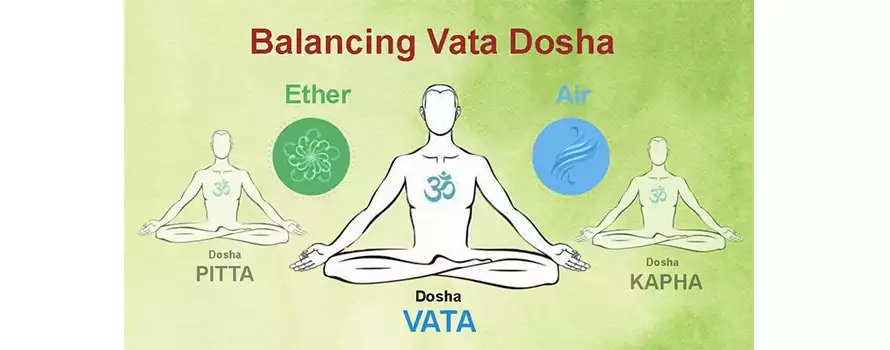The traditional Indian medicinal science known as Ayurveda employs a holistic, all-natural approach to treat medical conditions. Rheumatoid arthritis (RA), commonly referred to as “Amavata,” is treated by some Ayurvedic medical professionals. An ayurvedic regimen may include supplements, dietary adjustments, and exercise.
The term “Ayurveda” is a combination of the Sanskrit words “Ayur” (life) and “Veda” (knowledge). Practitioners achieve a balance between the three energy forces, or “Doshas,” of life: Vata, Pitta, and Kapha. Ayurvedic treatment for RA can differ depending on how the practitioner applies the diagnostic criteria. For instance, proponents of the “Madhava Nidana” philosophy believe that digestive irregularities and inflammatory agents cause RA. On the other hand, supporters of the “Ashtanga Hridaya” school of thought believe that RA is caused by bad dietary and lifestyle decisions that cause the body to become inflamed. Both approaches include herbs, vitamins, dietary changes, and exercise to relieve the symptoms of RA. This article will look into Ayurvedic treatment for arthritis, addressing its core concepts.
- OSTEO ARTHRITIS
Osteoarthritis is a degenerative joint disease without inflammation (OA). The bones and cartilage of that particular joint are impacted. It can affect people of all ages, but older obese individuals and those with larger joints, such as the knee, shoulder, hip, etc., are more likely to suffer it. Pain is the primary symptom. In more serious circumstances, it also makes the joint move and makes a crackling sound. Fluid occasionally floods the joint. Pain when walking downstairs is one of the most significant symptoms.
The main aim will be to arrest the progression of OA because it is a degenerative disorder. Dryness is experienced as a result of degeneration and bone friction. Depending on the severity and response to our operations, the length of the therapy may range from 14 days to 21 days. We also see that the muscles surrounding the problematic joint are strengthening along with the joint’s condition. When this is done, the joint starts to mend by itself. Moderate lifestyle changes, medication, and sufficient follow-up are required for the management of OA.
- RHEUMATOID ARTHRITIS
- GOUT
- OSTEOPOROSIS
- FROZEN SHOULDER
These are the
Ayurvedic remedies for Arthritis
- Ayurvedic approach – Since Ama and Vata are the main causes of arthritis, a long-term treatment plan for the ailment should involve vigorous Ama digestion and Vata reduction techniques. The production of Ama should steadily decrease and eventually disappear as digestion gets better over time. This meticulous, cautious approach makes use of several actual Ayurvedic treatments.
- Ama’s digestion must be improved through fasting. Fasting can be divided into two categories: full and partial.
- Daily Ayurvedic therapies should be supplemented with easy exercises. Exercise volume and intensity can differ from person to person depending on their limitations.
- A liberal intake of fruit juices rich in vitamin C will increase the effectiveness of Ayurvedic anti-arthritis therapy. Vitamin C is essential for reducing bone pain.
- Guggul, also known as Commiphorawightii, is a potent herb that can be used to cure arthritis. Depending on availability, Guggul can be taken in doses of one to three grams twice daily, with warm water, and right after meals. However, keep in mind that Guggul is not advised for persons with allergies or kidney problems.
Here are a few anti-inflammatory foods that are beneficial for Arthritis patients:
- People with arthritis should always include ginger in their diets as it aids in the treatment of several neurological, musculoskeletal, and rheumatic conditions. Consuming 5 grams of fresh ginger three times a day can assist digestion and reduce Ama formation.
- Curcumin, one of the primary components of turmeric, has potent anti-inflammatory properties that make it easier for arthritis patients to move and lessen morning stiffness and joint swelling. According to specialists, the benefits of taking curcumin for two weeks (about 1200 mg per day) are compared to those of using other conventional treatments for two weeks.
- Ayurvedic medicines frequently contain garlic, especially those that treat arthritis and significantly lessen its symptoms. According to experts, garlic is especially effective at reducing arthritis pain because it helps prostaglandins manage inflammation and related pain.
- Bitter gourd juice and potato juice are two other anti-arthritis foods that have been proven to be quite beneficial in reducing the symptoms of arthritis. Celery, particularly its fluid extract, aids in the relief of arthritic symptoms. The green rhubarb stalk is another nutrient-rich food that has exceptional anti-arthritis properties.
Other Ayurvedic therapies for arthritis that Birla Ayurveda offers include:
- Potli
- Basti
- Navra Kizhi



